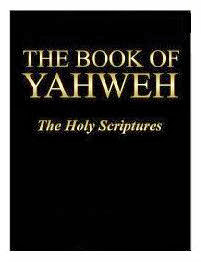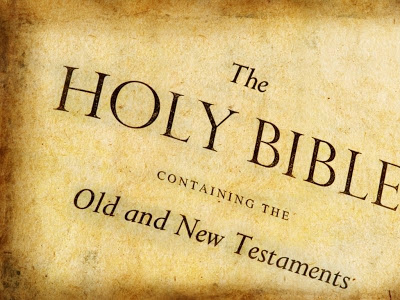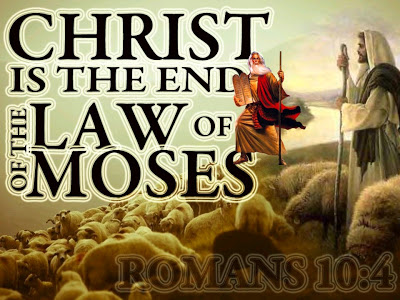Joseph Herrin (11-08-2013)

John Wimber, one of the founders of the Vineyard Movement, was not raised with a Christian influence in his life. He had never entered the doors of a church in his youth, never read a Bible, or heard one read. He was a keyboard player for a rock group in the early 1960s, when he was invited to attend a Bible study. He was so ignorant of Christianity that he has shared in his testimony about his incredulity when someone told him about the Bible. “God has a book out?”
I have been intrigued by the innocent and sincere surprise expressed by John Wimber at the discovery that God has given to mankind a book – His book. Those who have been raised in Christian homes, attended church services, or otherwise had some Christian influence growing up, often fail to comprehend the wonder of what God has done in providing for mankind a book. Think about it for a moment. The world is filled with books written by men, for men. Yet there is only one book written by God for men. The uniqueness and weightiness of this book is so extraordinary that men simply refer to it as “THE BOOK.” (The word Bible means “book.”) Some add to this description the word “Holy,” which means “sacred, set-apart, having a spiritually pure quality.”

There is truly no other book on earth like Yahweh’s book. It is THE Holy Book.
Another name given to this book which Yahweh has authored is the Scriptures. This too is often given the appellation “Holy.” The English word “Scriptures” comes from the Latin “scriptura” which means “writing.” Once again, we find that this is not just an ordinary writing. This book is referred to as THE Writings, THE Scriptures. This writing stands out among all other writings in the world. It alone is God’s tome, His authorship, the words of divinity recorded for mankind.
As a child I remember feeling something akin to the wonder expressed by John Wimber when he first was introduced to the Bible. When I was around ten years old I was given a small, brown, leather bound King James Bible. It had gold edges to the pages and a cloth book mark that was attached to the spine of the book. Opening the cover, there was a page to write your name. It said something like “This Bible belongs to _________________.”
I remember my delight in being given this Bible as a child. I carried it with me every time we set out for church. The size of the book was diminutive, containing small print. It also contained marginal notes, and links to other Bible passages that were related. I treasured this Bible. It did not sit on a shelf collecting dust. I read it. I used it to conduct my own topical Bible studies. In my early teen years I was given a Strong’s Exhaustive Concordance to the Bible, as well as a Nave’s Topical Bible, and a Bible dictionary. These books were my reference tools, but they were nothing without the Bible itself.
I remember the satisfaction I had as a youth carrying my Bible around. It was not a satisfaction that comes from showiness, for I was a very timid youth and it was only with great difficulty that I would tell a stranger that I was a Christian. Rather, my satisfaction came from the knowledge that I had God’s words in my possession. I could study these words to learn about God. I could find wisdom and understanding within the pages of this book. Wisdom and understanding were two things I zealously desired. Therefore, my Bible was exceedingly precious to me.
It has been more than four decades since I received my first Bible and I have remained an avid student of the Word of God. I have never lost my zeal to acquire wisdom and understanding, and I have discovered no other source equal to the Scriptures to fulfill my desire. I have learned much from the pages of scriptures in the past decades. I have also learned many things ABOUT this book. Most of my teachings focus on things I have learned from the content of the Bible as I have been instructed by the Holy Spirit. This writing series is different in that my goal is to set forth some of the things I have learned about this book that we call The Bible. It is an exemplary book; a remarkable book; a unique book. I hope that it might be to you as much of a treasure as it has been in my life.
The Two Covenants/Testaments

Moses and Yahshua – Two Covenants
The Christian Bible is divided into two sections. These sections are identified with two distinct covenants that Yahweh has made with mankind. These covenants are the old covenant of the Law delivered to Moses, and the new covenant of grace established through the blood of God’s Son Yahshua. Most Bibles today use the word “Testament” instead of “Covenant” to describe the two divisions of the Scriptures. Both of these words are in various ways descriptive of the body of writings they pertain to, but they contain different shades of meaning. Discovering where the terms “New Covenant,” and “New Testament” came from is helpful in order to understand how these terms differ.
The New Testament of the Bible was written in the Greek language. It has been translated into other languages, one of the earliest being Latin. In Luke’s gospel, as well as the apostle Paul’s first letter to the church in Corinth, we find a quotation of Christ where He utters the words “new covenant.” These words were spoken during the last supper which Yahshua shared with His disciples prior to His crucifixion.
Luke 22:20
“This cup that is poured out for you is the new covenant in my blood.”
I Corinthians 11:25
In the same way also he took the cup, after supper, saying, “This cup is the new covenant in my blood. Do this, as often as you drink it, in remembrance of me.”
The actual Greek language in which both Luke and Paul wrote uses the phrase “kaine diatheke.” The Greek word kaine is defined as “new” while diatheke means “covenant.” The word diatheke occurs 33 times in the New Testament. Following are some more examples.
II Corinthians 3:5-6
Our sufficiency is from God, who has made us sufficient to be ministers of a new covenant, not of the letter but of the Spirit. For the letter kills, but the Spirit gives life.
II Corinthians 3:14-15
For to this day, when they read the old covenant, that same veil remains unlifted, because only through Christ is it taken away.
We see that the apostle Paul used the phrase “old covenant” to contrast the covenant of Law established under Moses with the “new covenant” established by Yahshua. In the Greek, the words “old covenant” appear as “palaia diatheke.” We see then that there is a solid justification for using the terms “Old Covenant” and “New Covenant” when referring to the two divisions of the holy Scriptures.
When the original Greek manuscripts which Paul and the gospel evangelists wrote were translated into Latin, these phrases became “Vetus Testamentum” and Novus Testamentum.” From there, somewhere around the year 1300 A.D. the Bible was again translated, this time from Latin to English. There were no ancient Greek manuscripts known, or available, to the English translators at the time. They had only Latin manuscripts, especially that which is called the Latin Vulgate, a translation attributed to Jerome who was commissioned by Pope Damasus I in 382 A.D. to create a revision of the Vetus Latina, which is an older Latin translation of the Bible. Thus, the first English translators were working from a translation of the Bible, rather than from the original manuscripts in their native languages. They were essentially translating a translation.
The Latin word Testamentum holds different meanings. One definition refers to a covenant, which is what the Greek word diatheke means. Another definition of Testamentum is “a will, or witness.” A will is also called a testament in English. A will provides a witness, or testimony, of a person’s final instructions to his heirs. When the Bible was first translated from Latin into English, the translators adopted the latter meaning, and adopted the English word Testament instead of the more accurate word Covenant.
There is some overlap between these English words, as one of the definitions of the word Testament is “covenant.” The word Testament, however, remains somewhat ambiguous, whereas the word Covenant conveys a greater clarity. To avoid confusion in the minds of the readers, I will be using the widely accepted word Testament when referring to the divisions of the Bible, rather than the word Covenant which I prefer. However, in this chapter I will use both terms in order to demonstrate the original use of the words.
Designating the two divisions of the Bible as the Old Covenant and the New Covenant is solidly supported in the Scriptures themselves. The apostle Paul gives further testimony in this matter.
Hebrews 8:8-9
“Behold, the days are coming, declares the Lord, when I will establish a new covenant with the house of Israel and with the house of Judah, not like the covenant that I made with their fathers on the day when I took them by the hand to bring them out of the land of Egypt.”
Paul is quoting the Old Testament prophet Jeremiah here (Jeremiah 31:31). We see that even the Old Testament writings made reference to a day when a New Covenant would be established between God and man. Paul additionally refers to the two covenants as the “first” and the “second” covenants.
Hebrews 8:7
For if that first covenant (word implied) had been faultless, there would have been no occasion sought for a second.
From this citation we see that it was possible for the Bible divisions to have been designated the “First Covenant” and the “Second Covenant.” This, however, did not happen. The words “Old” and “New” are what have come down to us instead.
Hebrews 8:13
When He said, “A new covenant,” He has made the first obsolete. But whatever is becoming obsolete and growing old is ready to disappear.
In the verse above we see that the word “new” is attached to the word “covenant.” The parallel association is observed in the word “old” being used to describe the earlier covenant delivered to Moses.
It is the practice of some Christians to ONLY read the New Testament portions of Scriptures. They reason that this is the division of the Bible that applies to them for they are bound to God through the New Covenant, not the Old Covenant. Rejecting the Old Testament writings is misguided, however. Yahweh has preserved both divisions of the Scriptures for the body of Christ. Great wisdom and understanding are to be derived from both Testaments. Though Christ fulfilled the Old Covenant that He might establish the New, it would be folly to discard the history of Yahweh’s prior dealings with man. The New Testament flows out of the Old Testament. They both share the same divine authorship. All of the Scriptures are “Spirit-breathed.”
(Note: Some may object to the statement that the Old Covenant no longer has authority over those who are “in Christ.” It is beyond the scope of this book to address this matter. You will find the subject set forth with much clarity and a firm Scriptural foundation in the book Laying Down the Law.)
I have been as much a student of the Old Testament as I have of the New Testament. I perceive the voice of Yahweh speaking to me through both bodies of writing. I would not understand the New Testament nearly as well if I did not have the Old Testament to provide a foundation. Indeed, the New Testament quotes the Old Testament more than two hundred times, and makes allusions to the Old Testament in hundreds of more instances. Those who have calculated such things have stated that more than ten percent of the New Testament consists of direct quotations, or allusions, to the Old Testament.
Perhaps I should already have defined the word covenant. The English word covenant shares a similar root with the word convene, which is defined as “to come together.” A covenant is Yahweh’s means of bringing man back into relationship with Himself after a separation occurred due to sin. In both the Old and New Covenants, blood played a central role in bridging the separation that existed between man and his Creator. The Bible tells us that “the soul who sins must die” (Old Testament), and “the wages of sin is death” (New Testament).
Under the Old Covenant, Yahweh permitted another creature to die in the place of man, so that man might live. The blood of bulls, goats, sheep, and birds served as substitutions, paying the penalty for the sins of man. Yet, these offerings had to be made year after year.
Under the New Covenant, Yahweh sent His Son to die in the place of man, that mankind might live. Yahshua’s sacrifice was perfect. It needed to be offered only once. All humanity’s sins were borne on the cross by the Son of God. Christ brought God and man into oneness, no longer separated by sin. This is the meaning of atonement (at-onement). We could say that Christ “convened” a meeting between God and man. He did so by means of establishing a “covenant” through His blood.
(Note: The word “atonement” was created by William Tyndale when he translated the Bible into English around the year 1526. Tyndale recognized that there was no English word that fully described the act of Christ to reconcile God to man by paying the penalty of sin, while also providing a merciful covering for man that he might stand in the presence of God without shame. Tyndale coined the word “atonement” to describe the work of Christ in reuniting man to his Creator.)
The subject of covenants is so central to the Bible, that we find that its two divisions are properly referred to as the Old Covenant and the New Covenant. The Bible presents two primary covenants that Yahweh has made with mankind. These covenants are designed to bring God and man together. In this we can see the shared origin of the words “covenant” and “convene.” Covenants bring disparate parties together, thereby convening them. In the case of the Biblical covenants, the two parties involved are God and man.
The Bible is an amazing book. It alone reveals the history of man and his Creator, the fall of man into sin, and separation from God. The Bible does not leave man in this forsaken condition, however. It reveals all that Yahweh has done to restore the breach that sin had created. We see the first Covenant that served as an interim measure until the fulness of time should arrive when Yahweh would send His Son into the earth. Thus we have provided the supremely important testimony of God’s two covenants with man.
Heart4God Website: http://www.heart4god.ws
Parables Blog: www.parablesblog.blogspot.com
Mailing Address:
Joseph Herrin
P.O. Box 804
Montezuma, GA 31063


I will look forward to the remaining chapters, Brother Herrin.
Hello Frank,
Thanks for commenting. This post is just the first chapter in this present series which I plan to post as a book when it is complete. I will be addressing the subject of ancient manuscripts in the original languages, Bible translation methods and philosophy, and the many different Bible versions that are available.
It would be difficult to properly answer your questions/objections in a comment field. I encourage you to continue to read this series as it is posted as these subjects will be addressed.
May you be blessed with peace and understanding in these days,
Joseph Herrin
The likelihood that this comment will probably not see the 'light of day' on your blog, Brother Herrin, does not deter me from commenting.
Common sense and reason tell us that two things that are different cannot be the same.
Common sense and reason must also tell us that by simply printing the words 'The Holy Bible' on the cover of a book, that does not qualify the book to be 'Yahweh's Book'.
Nowhere in the scriptures did God promise to preserve His 'meaning', but He did promise to preserve His 'WORDS'.
Considering the fact that there are over 150 different – 'The Holy Bible' translations/versions in English that are available (not the same), and speculating that only one could possibly be God's Word as He meant us to have His Word, then how are we to determine which is from God from those that are from the Devil? Certainly, if they are not from God (being different from God's Words), then they must be from the Devil.